Belgian Malinois vs German Shepherd: A Comprehensive Comparison
Introduction
At German Shepherd Puppies NC, we’ve been breeding exceptional German Shepherd puppies in North Carolina for over 30 years. While we specialize in providing the finest German Shepherd puppies for sale, we understand that prospective dog owners often compare similar breeds before making their decision. One common comparison is between the German Shepherd and the Belgian Malinois. Both are intelligent working breeds with impressive capabilities, but they have distinct differences that might make one more suitable for your specific situation than the other.
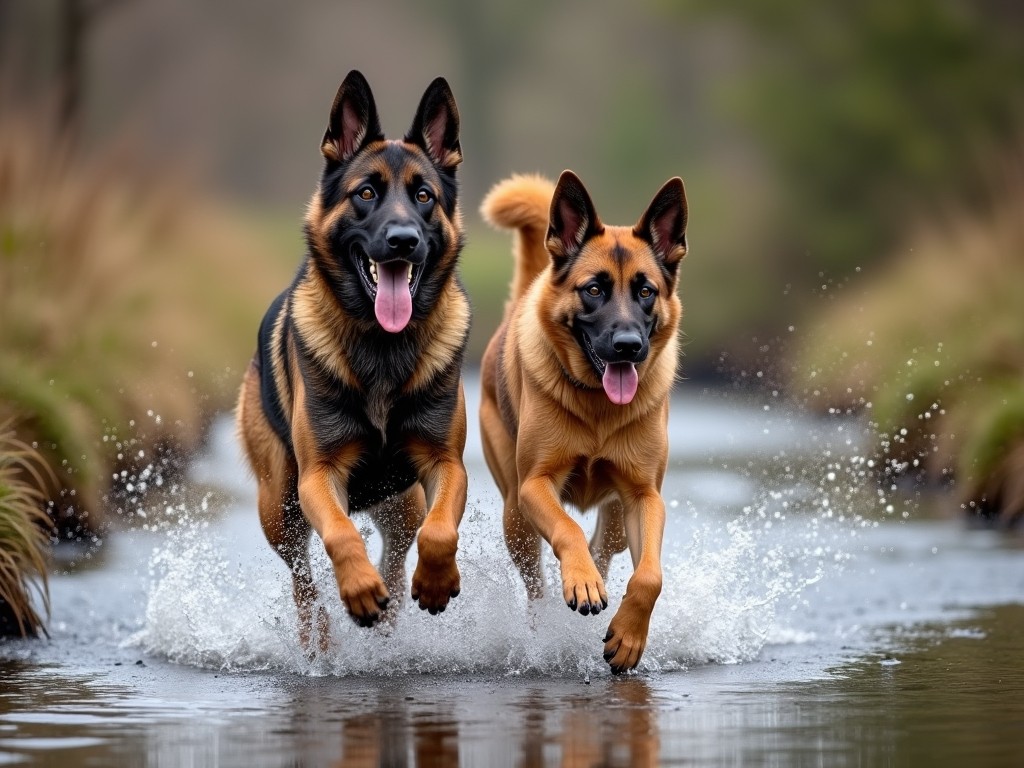
Physical Characteristics and Appearance
German Shepherd
German Shepherds, like the premium puppies we breed at German Shepherd Puppies NC, are renowned for their noble, confident stance and powerful build. Our German Shepherd puppies grow into adults that typically stand 22-26 inches tall and weigh between 50-90 pounds. Their double coat comes in various colors, including the classic black and tan, as well as black, white, blue, and sable varieties – all of which you can find among our German Shepherd puppies for sale.
The German Shepherd’s appearance is characterized by:
- A longer muzzle and larger head
- A gently sloping back (though this varies by breeding line)
- Erect ears and an alert expression
- A bushy tail that hangs with a slight curve
Belgian Malinois
The Belgian Malinois is often mistaken for a German Shepherd at first glance, but closer inspection reveals noticeable differences:
- A lighter, more square-shaped body
- Typically stands 22-26 inches tall but weighs less (40-80 pounds)
- A shorter coat with less variation in color (primarily fawn to mahogany with a black mask)
- A straighter back
- Generally leaner muscle structure
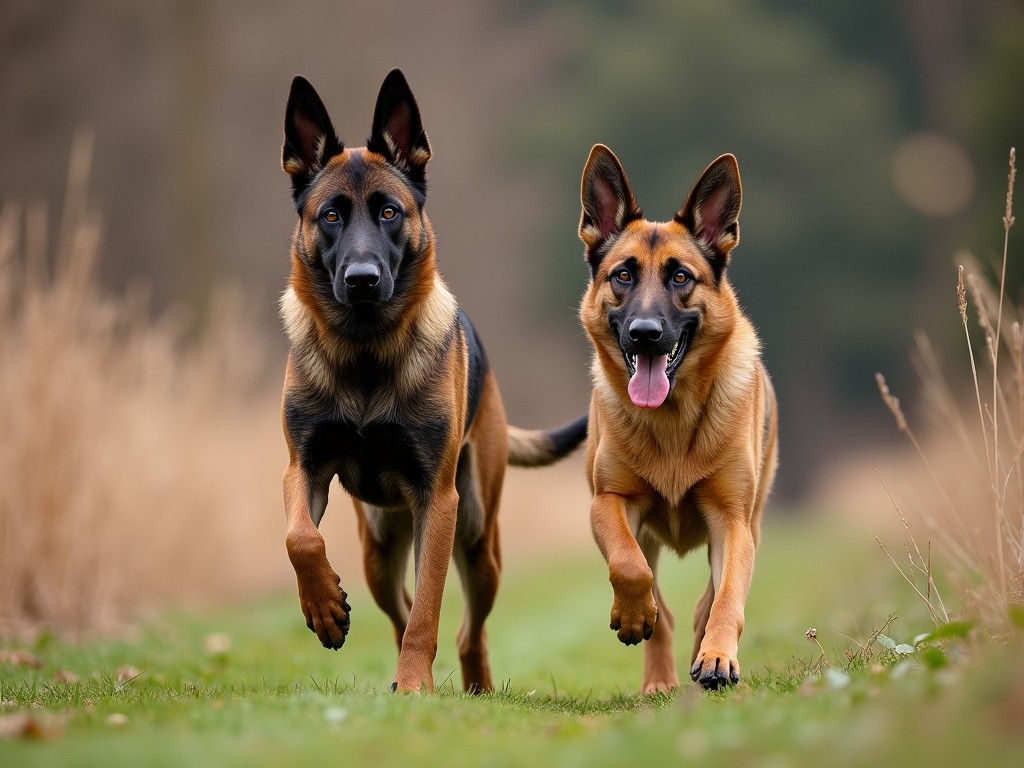
Temperament and Personality Traits
German Shepherd
Our German Shepherd puppies are bred for their exceptional temperament, which includes:
- A balanced combination of confidence and approachability
- Strong loyalty and protective instincts toward their family
- High intelligence with an eagerness to please
- Adaptability to various living situations and family structures
- A more measured energy level that can adapt to household activity
This balanced nature is why our German Shepherd puppies have become beloved family companions across North Carolina and beyond. They possess natural protective instincts without excessive aggression when properly trained and socialized.
Belgian Malinois
Belgian Malinois typically exhibit:
- Intense drive and energy levels that rarely have an “off switch”
- Extraordinary work ethic and focus
- Strong prey drive
- Deep bonding with their handler but sometimes less affinity for the entire family
- Potential for higher reactivity and sensitivity
The Malinois is often described as “more intense” than the German Shepherd, which can be beneficial in working roles but challenging in a typical family setting.
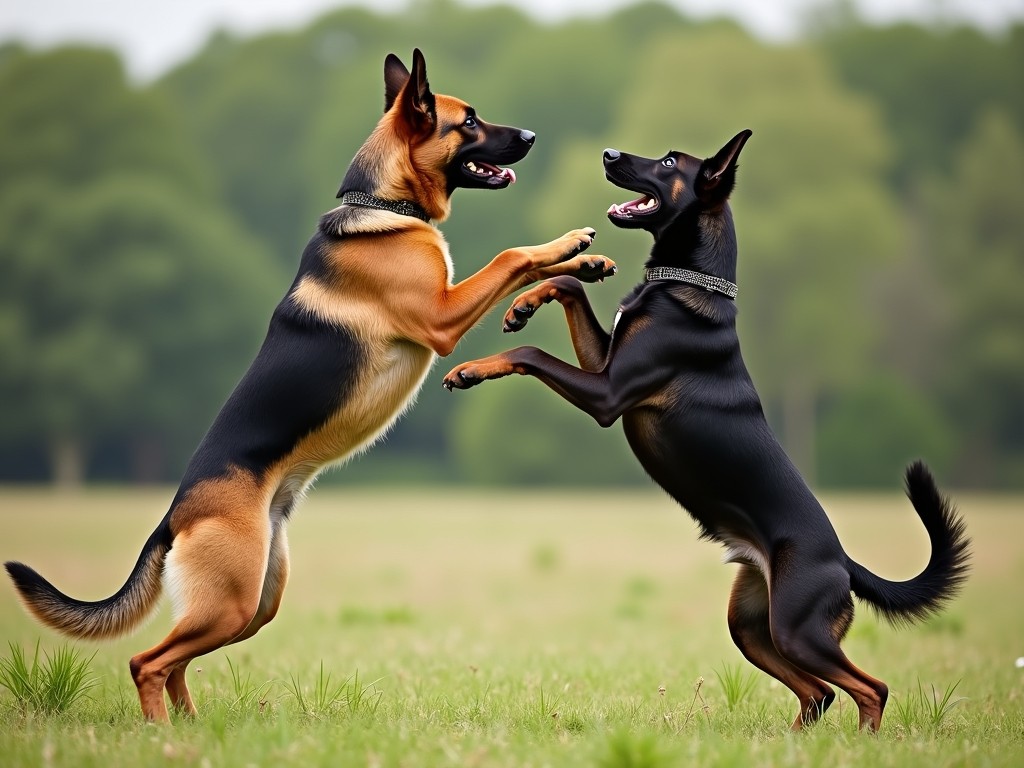
Training and Exercise Requirements
German Shepherd
The German Shepherd puppies available at German Shepherd Puppies NC come from lines selected for trainability and intelligence. They require:
- Consistent, structured training from puppyhood
- 1-2 hours of daily exercise
- Mental stimulation through training, puzzles, or tasks
- Social experiences to develop their confident temperament
With proper training, our German Shepherd puppies develop into well-mannered adults capable of everything from basic obedience to advanced tasks. Their ability to balance work and relaxation makes them versatile companions.
Belgian Malinois
Belgian Malinois have significantly higher exercise and stimulation requirements:
- 2-3+ hours of intensive daily exercise
- Constant mental challenges to prevent destructive behavior
- More specialized training approaches
- Structured outlets for their working drive
Without sufficient exercise and mental stimulation, a Malinois can become problematic in a home environment, often developing destructive behaviors or anxiety.
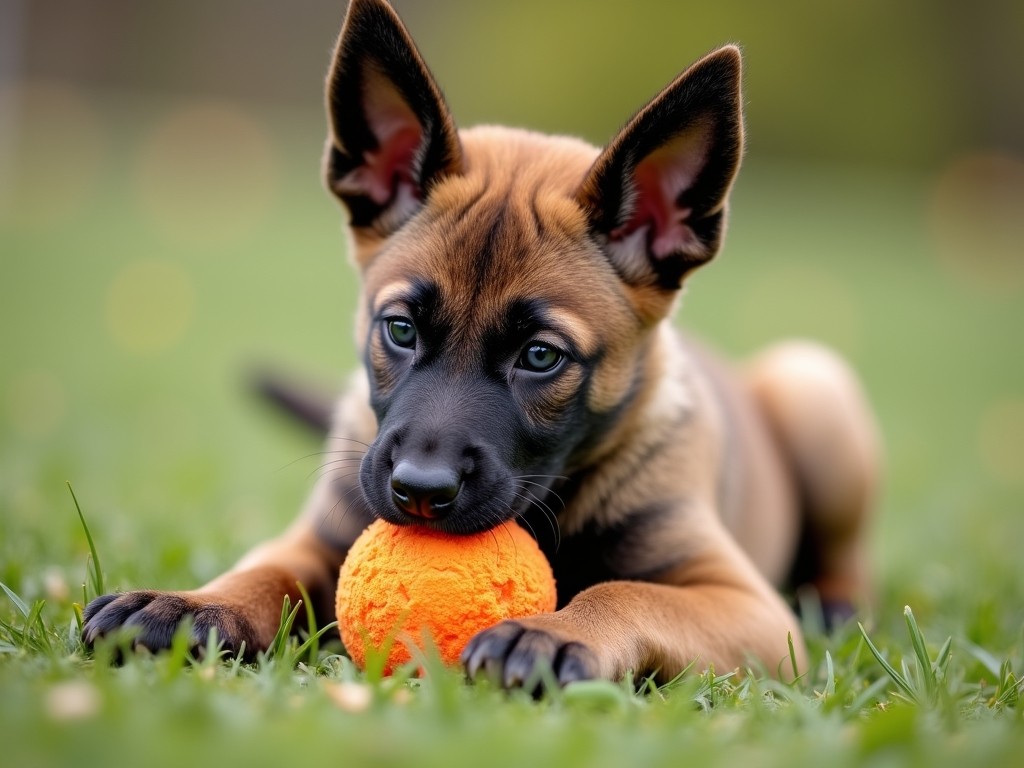
Health and Lifespan
German Shepherd
At German Shepherd Puppies NC, we prioritize health testing and responsible breeding practices to minimize hereditary issues. Properly bred German Shepherds like our puppies typically:
- Live 9-13 years
- May have predispositions to hip and elbow dysplasia (which we screen for in our breeding program)
- Can experience digestive sensitivities
- May develop age-related conditions such as degenerative myelopathy
Our commitment to health testing and selective breeding means our German Shepherd puppies for sale have the best possible genetic foundation for a long, healthy life.
Belgian Malinois
Belgian Malinois often have:
- A lifespan of 10-14 years
- Fewer genetic health issues overall
- Similar risks for hip and elbow dysplasia
- Potential for eye problems
- Working injuries due to their high-intensity activities
While generally considered slightly healthier than German Shepherds on average, individual health depends significantly on breeding practices, which is why our careful selection process for our German Shepherd puppies is so important.
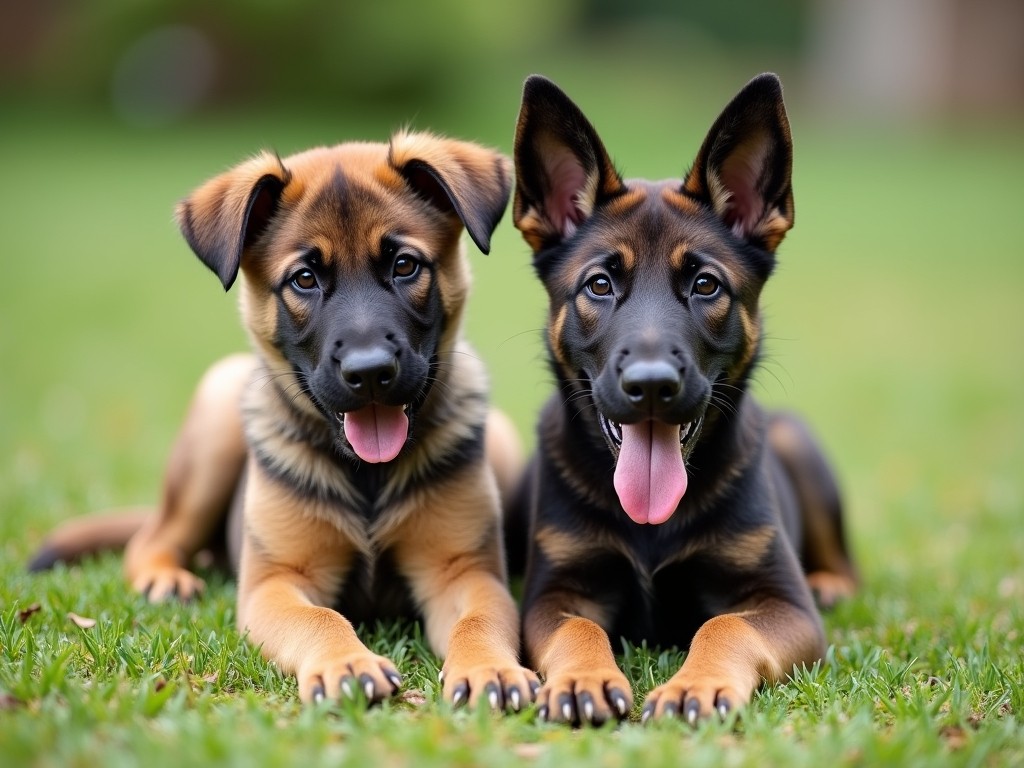
Suitability for Different Lifestyles
German Shepherd
The German Shepherd puppies we breed at German Shepherd Puppies NC are remarkably versatile and adapt well to various lifestyles:
- Family homes with children (their patient and protective nature makes them excellent family dogs)
- Active suburban or rural settings
- Homes with moderate daily activity
- First-time dog owners who are committed to training
- Families looking for both a companion and a natural guardian
Whether you’re looking for black German Shepherd puppies, white, blue, sable, or long-haired varieties, our puppies are raised with the temperament and health to thrive in family environments.
Belgian Malinois
Belgian Malinois are typically better suited for:
- Working roles (police, military, competitive dog sports)
- Extremely active owners who can provide hours of daily exercise
- Experienced dog handlers
- Homes without young children
- Situations where their intensity and drive are assets rather than challenges
The Malinois excels in working capacities but can be overwhelming as a family pet for most households.
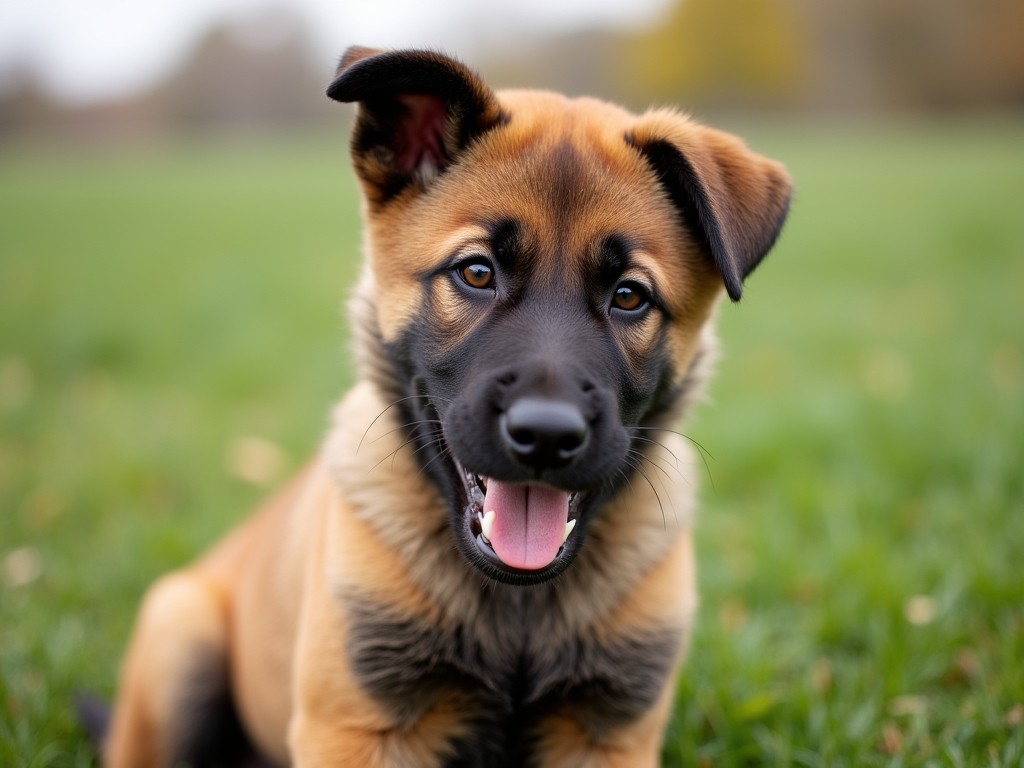
Working Capabilities
German Shepherd
German Shepherds from quality breeding programs like ours at German Shepherd Puppies NC excel in numerous roles:
- Family protection
- Search and rescue
- Therapy and service work
- Herding
- Competitive obedience and agility
- Police and military work
Their versatility is unmatched, which is why German Shepherds continue to be one of America’s most popular breeds for both working roles and family companionship.
Belgian Malinois
Belgian Malinois are specialized working dogs that particularly excel in:
- Police and military operations
- Detection work
- Protection sports
- High-level competitive activities
- Intensive working environments that require extreme focus
Their exceptional drive and energy make them outstanding working dogs but can be excessive for typical pet homes.
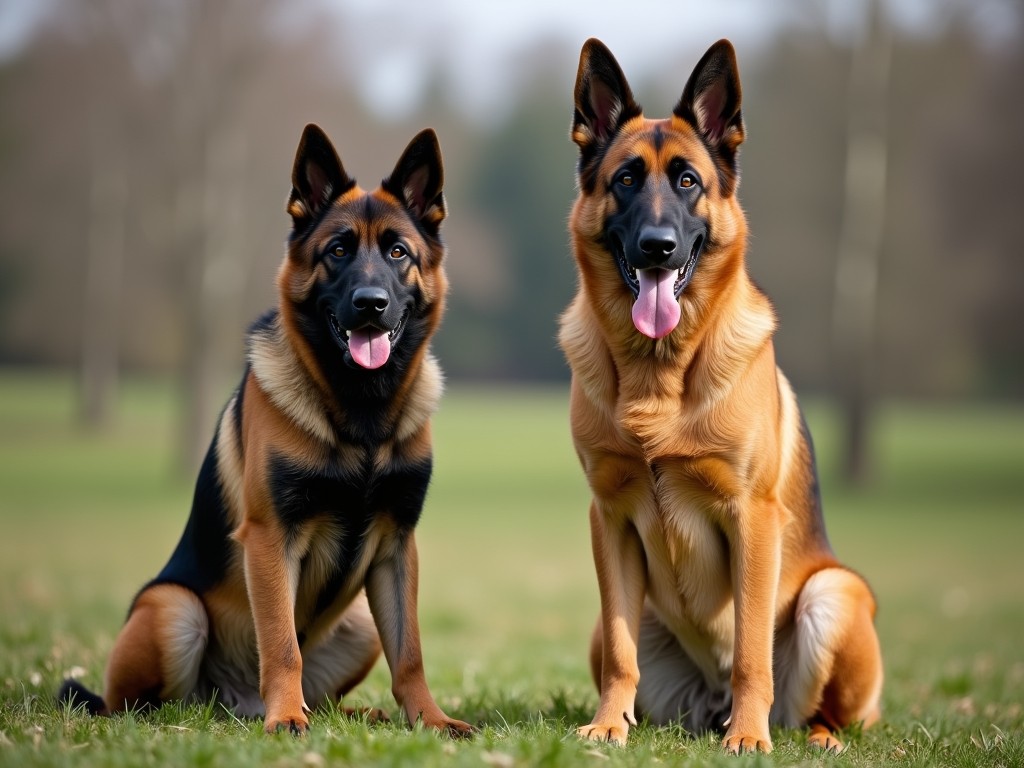
Care Requirements
German Shepherd
Our German Shepherd puppies require:
- Regular brushing (2-3 times weekly, more during seasonal shedding)
- Quality nutrition appropriate for large, active breeds
- Regular veterinary care
- Mental and physical exercise
- Consistent training
At German Shepherd Puppies NC, we guide new puppy owners through these care requirements to ensure our puppies thrive in their new homes.
Belgian Malinois
Belgian Malinois require:
- Less grooming (weekly brushing is typically sufficient)
- High-quality, calorie-dense nutrition for very active dogs
- More intensive exercise regimens
- Nearly constant mental challenges
- Expert-level handling and training
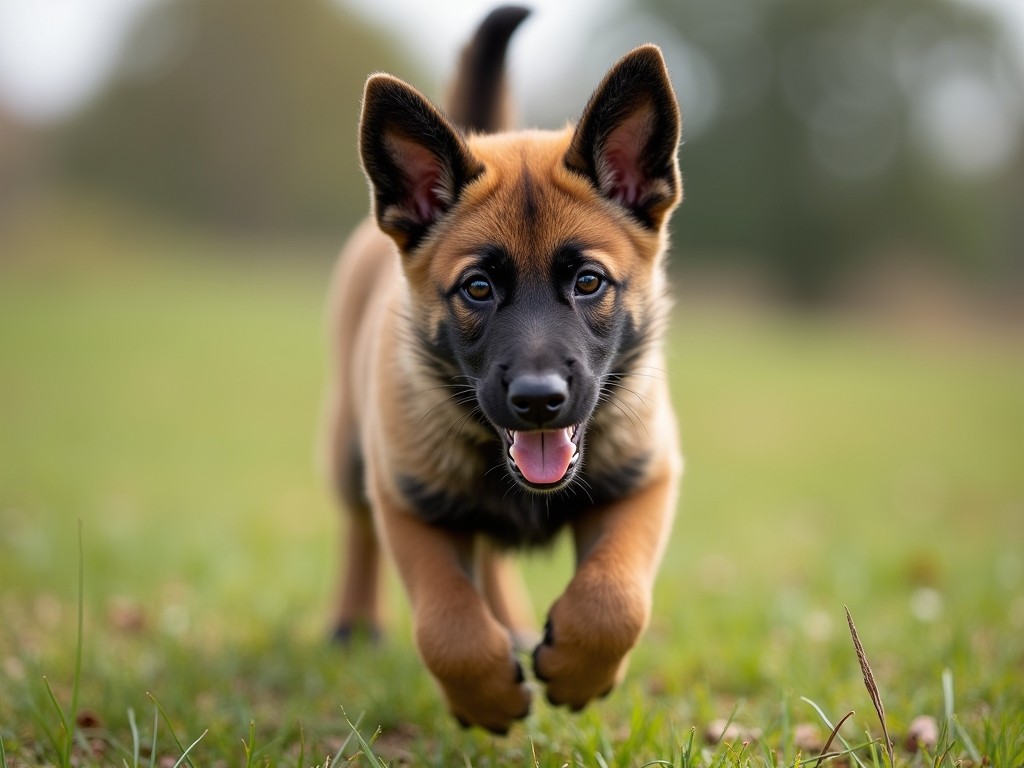
Making Your Decision
When deciding between these two exceptional breeds, consider:
- Your experience level: German Shepherds, especially those from reputable breeders like German Shepherd Puppies NC, are generally more forgiving for less experienced owners.
- Your activity level: Be honest about your lifestyle. Our German Shepherd puppies adapt well to moderately active families, while Malinois need owners with exceptionally active lifestyles.
- Your household composition: German Shepherds typically interact better with children and other pets.
- Your goals for the dog: For family companionship with natural protection abilities, our German Shepherd puppies offer the perfect balance.
- Your living situation: German Shepherds adapt better to various living environments than the high-energy Malinois.
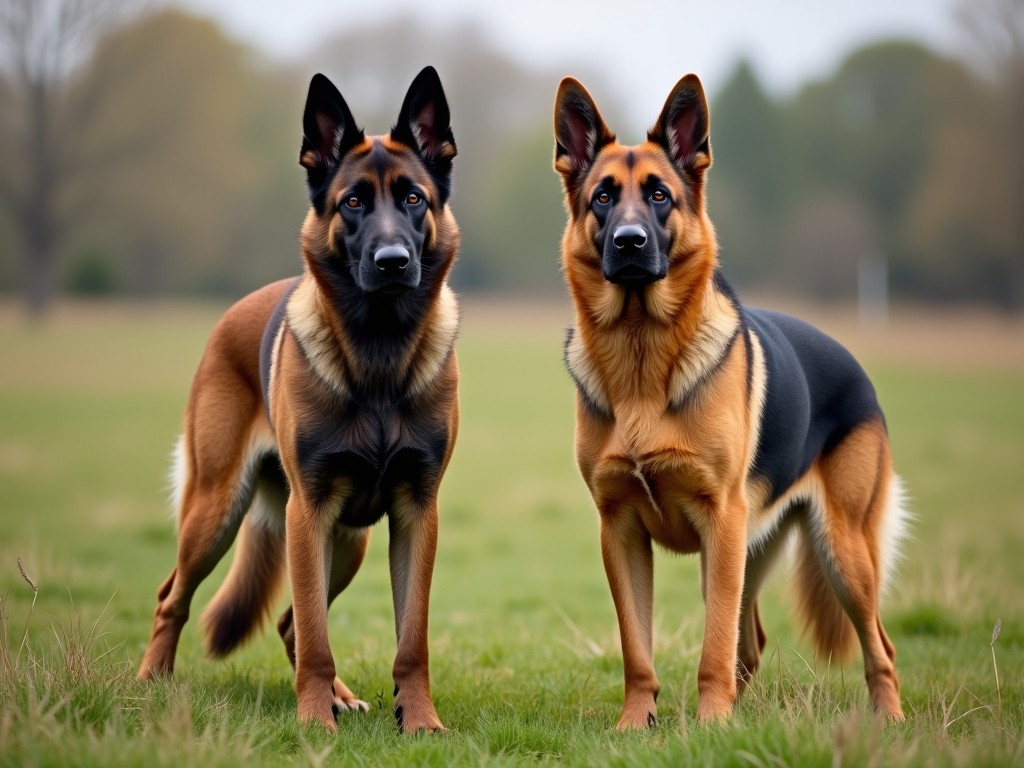
Visit German Shepherd Puppies NC Today
With over 30 years of breeding experience, German Shepherd Puppies NC has developed lines of German Shepherd puppies that combine the best traits of this remarkable breed. Our puppies offer the intelligence, loyalty, and versatility that make German Shepherds one of America’s favorite breeds, without the extreme intensity that can make the Belgian Malinois challenging for many homes.
Whether you’re looking for black German Shepherd puppies, white, blue, sable, or long-haired varieties, we have the perfect puppy to match your family’s needs. Our German Shepherd puppies are raised with health and temperament as our top priorities, ensuring they’ll become balanced, confident companions for years to come.
If you’re looking for German Shepherd puppies for sale near me in North Carolina, visit our facility to meet our exceptional puppies in person. Our team is ready to help you find the perfect addition to your family and provide guidance throughout your journey with your new companion.
Contact German Shepherd Puppies NC today to learn more about our available puppies and breeding program. Your perfect canine companion is waiting for you!
Miniature German Shepherd Puppies: What to Know Before Bringing One Home
Introduction
For over three decades, German Shepherd Puppies NC has been dedicated to breeding exceptional German Shepherds in North Carolina. As enthusiasts with extensive knowledge of this remarkable breed, we understand that many prospective dog owners are increasingly interested in miniature German Shepherd puppies. These compact companions offer many of the beloved traits of standard German Shepherds in a smaller package. This comprehensive guide will explore everything you need to know about miniature German Shepherds, from their origins and characteristics to care requirements and considerations before bringing one home.
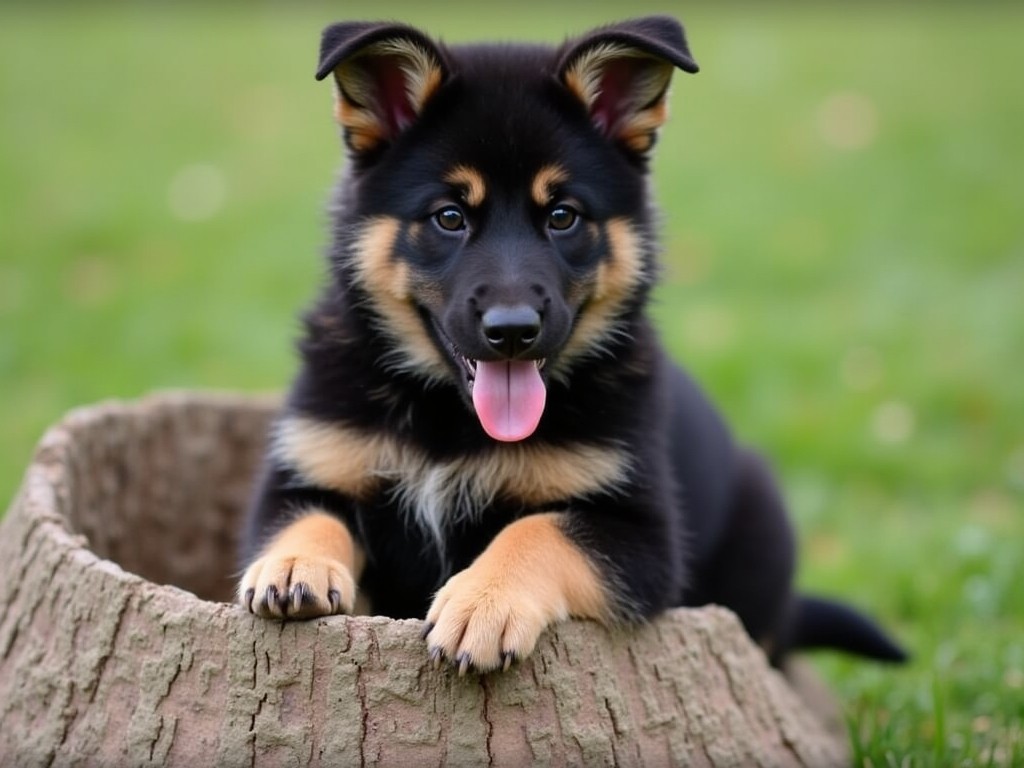
What Is a Miniature German Shepherd?
A miniature German Shepherd is not a purebred or officially recognized breed by the American Kennel Club (AKC). Rather, these dogs are typically created through one of several methods:
- Crossbreeding: Most common mini German Shepherds are crossbreeds, often mixing German Shepherds with smaller breeds like Pomeranians, Corgis (creating what some call a “Corgi mini German Shepherd”), or Collies.
- Introducing the dwarfism gene: Some breeders selectively breed German Shepherds with the naturally occurring dwarfism gene, resulting in smaller dogs. However, this approach can lead to health complications.
- Breeding runts: Some breeders repeatedly breed smaller German Shepherds (runts) to produce smaller offspring. This practice requires careful health monitoring.
It’s important to understand that when searching for “mini German Shepherd for sale” or “miniature German Shepherd for sale,” you’re likely looking at a crossbreed rather than a purebred German Shepherd in miniature form.
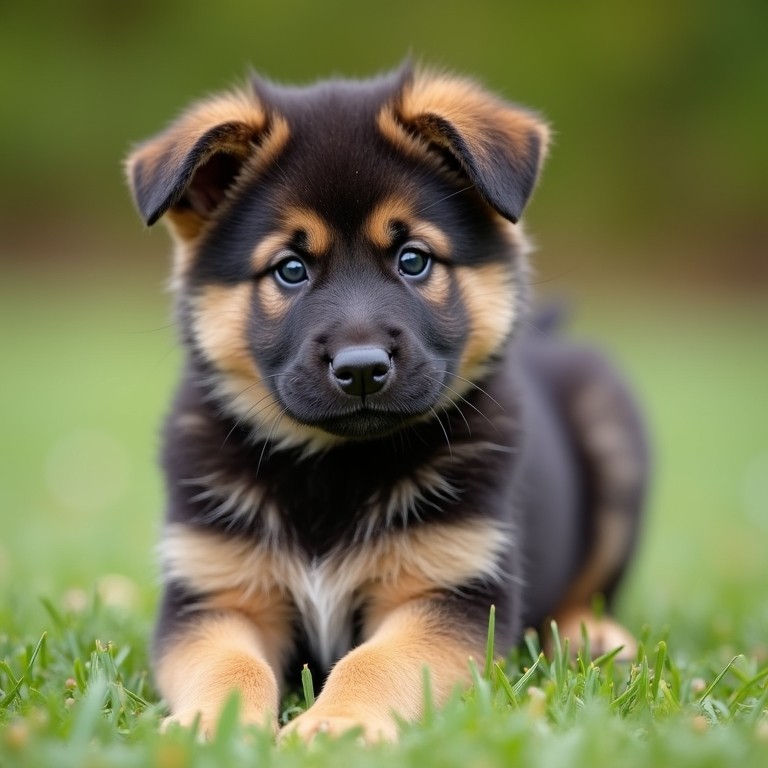
Physical Characteristics
Miniature German Shepherds typically range from 15 to 20 inches in height and weigh between 30 to 50 pounds, roughly half the size of a standard German Shepherd. They often retain the distinctive coloration and facial features of German Shepherds, including:
- The familiar black and tan coloration (though other colors are possible)
- Erect, pointed ears
- An alert, intelligent expression
- A double coat that requires regular grooming
Their smaller stature makes them more manageable for apartment living or for families with limited space, while still providing many of the physical attributes that make German Shepherds so beloved.
Temperament and Personality
Mini German Shepherds typically inherit many of the admirable personality traits of their larger counterparts, including:
Intelligence and Trainability
Like standard German Shepherds, mini versions are highly intelligent and eager to please, making them relatively easy to train with consistent, positive reinforcement techniques. They excel at learning commands and can be trained for various tasks, from basic obedience to more complex activities.
Loyalty and Protectiveness
Miniature German Shepherds often form strong bonds with their families and display protective instincts. While less intimidating than full-sized German Shepherds, they still make excellent watchdogs and will alert you to strangers or unusual activities.
Energy Level
Though smaller in size, mini German Shepherds typically retain the energetic nature of the breed. They require regular exercise to maintain physical and mental health. Daily walks, play sessions, and mental stimulation through training or puzzle toys are essential for preventing boredom and destructive behaviors.
Compatibility with Children and Other Pets
When properly socialized from a young age, miniature German Shepherds typically do very well with children. Their protective nature makes them watchful guardians, while their playful disposition makes them wonderful companions. However, as with any dog, interactions between young children and puppies should always be supervised.
Regarding other pets, early socialization is key. Mini German Shepherds can get along well with other dogs and even cats when introduced properly and raised together.
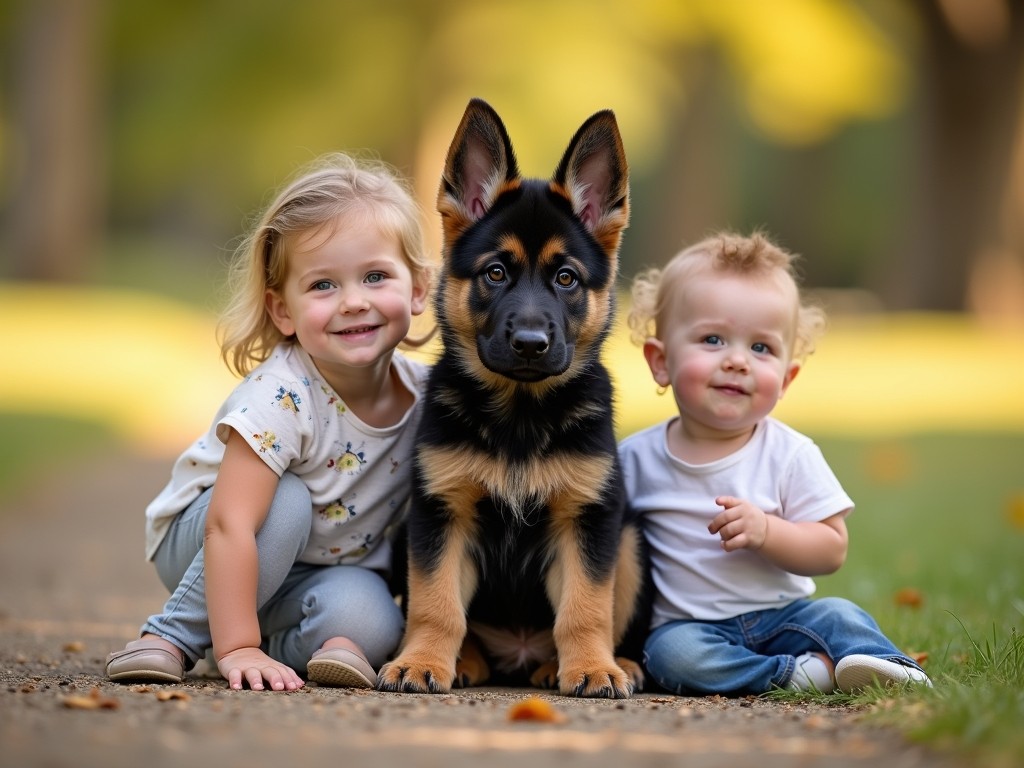
Health Considerations and Veterinary Costs
Prospective owners should be aware of potential health concerns and associated veterinary costs when considering a miniature German Shepherd.
Common Health Issues
Depending on how they were bred, mini German Shepherds may be prone to certain health conditions:
- Joint problems: Hip and elbow dysplasia can occur, especially in dogs bred from standard German Shepherds.
- Spinal issues: Particularly in dogs with dwarfism, back problems may develop over time.
- Digestive sensitivities: Some mini German Shepherds inherit the sensitive digestive systems common in standard German Shepherds.
- Eye conditions: Progressive retinal atrophy and other eye issues may be present, particularly in crossbreeds.
Regular veterinary check-ups can help detect and address these issues early.
Expected Veterinary Costs
Owners should budget for the following veterinary expenses:
- Initial vaccinations and check-ups: $200-$500 in the first year
- Spaying/neutering: $200-$500
- Annual wellness exams: $100-$300 per year
- Preventative medications (heartworm, flea, and tick): $200-$500 annually
- Emergency fund: It’s advisable to set aside at least $1,000-$2,000 for unexpected health issues
Additionally, pet insurance can help manage costs, with monthly premiums typically ranging from $30 to $100 depending on coverage levels.
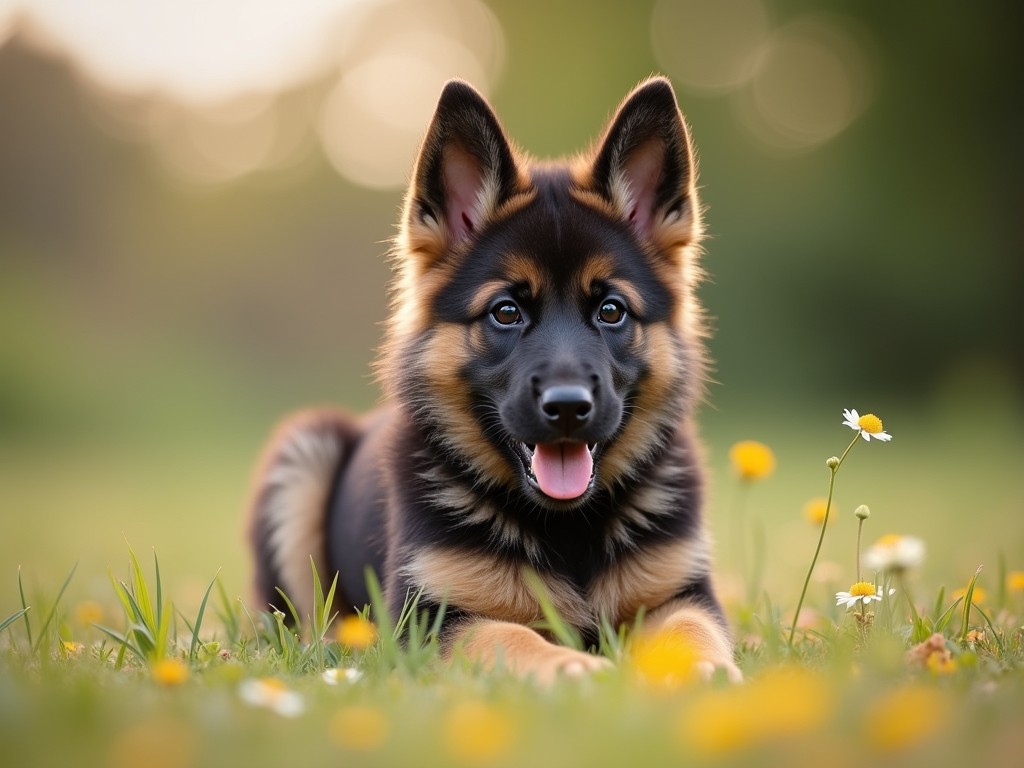
Nutrition and Feeding
Proper nutrition is essential for maintaining your miniature German Shepherd’s health and longevity.
Dietary Needs
Mini German Shepherds typically thrive on high-quality dog food formulated for active, medium-sized breeds. Depending on their specific crossbreed characteristics, they may have particular dietary requirements:
- Protein content: Look for foods with quality protein sources listed as primary ingredients
- Joint support: Foods containing glucosamine and chondroitin can support joint health
- Digestive health: Some may benefit from easy-to-digest formulas or added probiotics
- Weight management: Portion control is important to prevent obesity, which can exacerbate joint issues
Feeding Schedule and Costs
Most adult mini German Shepherds do well with two measured meals daily. Puppies require more frequent feeding, typically 3-4 times per day until 6 months of age.
Monthly food costs typically range from $40 to $80, depending on the quality of food selected. This is slightly less than feeding a standard German Shepherd but still represents a significant ongoing expense.
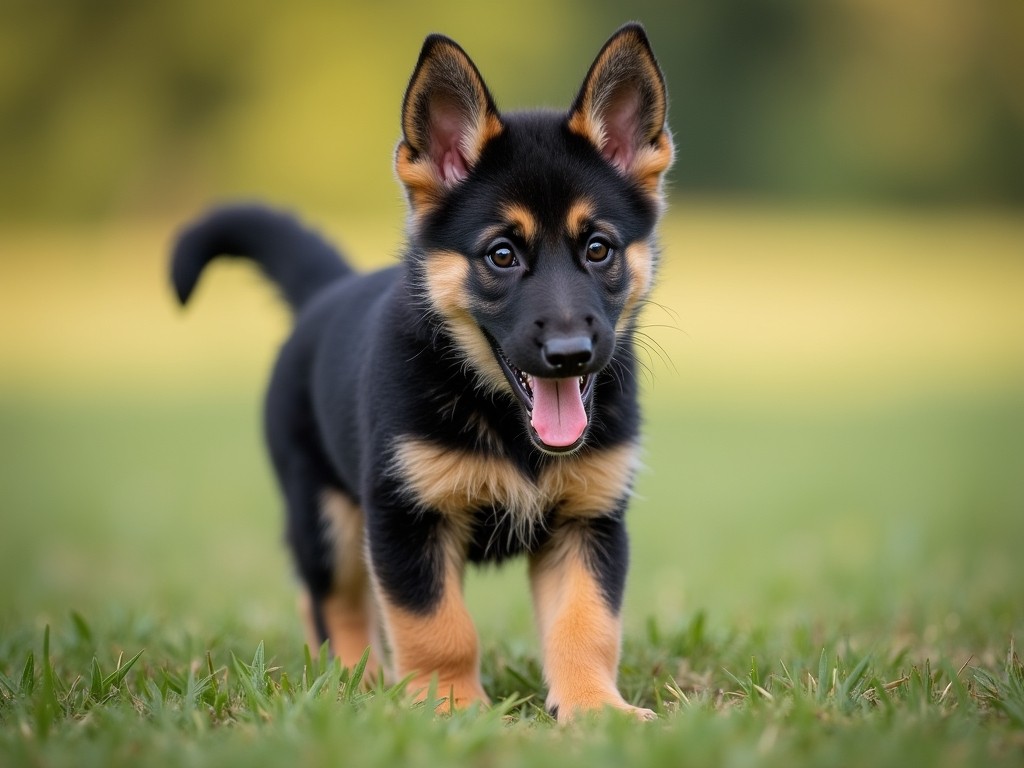
Exercise and Training Requirements
Despite their smaller size, miniature German Shepherds have inherited the working dog mentality of their larger counterparts and require regular physical and mental exercise.
Exercise Needs
Plan to provide your mini German Shepherd with:
- 30-60 minutes of daily exercise
- A mix of walking, running, and play
- Mental stimulation through training and puzzle toys
- Secure, fenced areas for off-leash play
Training Approach
Begin training early, using positive reinforcement techniques. Mini German Shepherds respond well to:
- Consistent, clear commands
- Reward-based training with treats, praise, and play
- Early socialization with various people, animals, and environments
- Regular training sessions that are short but frequent
Properly trained, these dogs make excellent companions for active individuals and families.
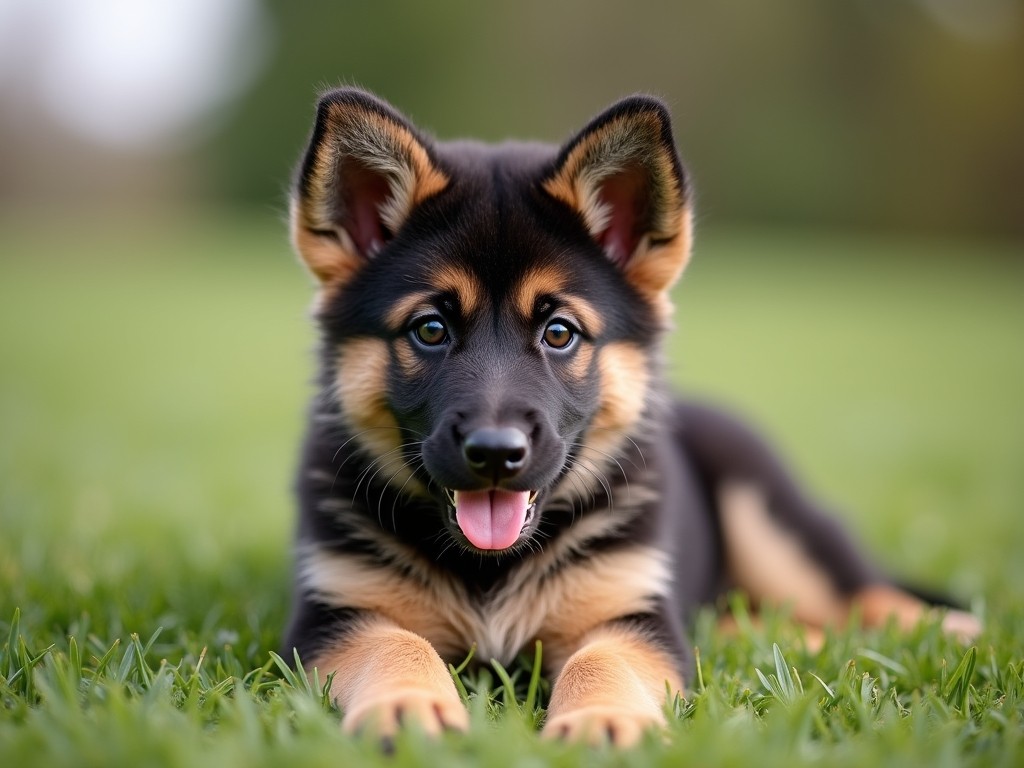
Conclusion: Is a Miniature German Shepherd Right for You?
A miniature German Shepherd can be a wonderful addition to the right home. They offer many of the beloved qualities of standard German Shepherds—intelligence, loyalty, and versatility—in a more manageable size. However, prospective owners should consider:
- They still require significant exercise, training, and mental stimulation
- Health issues may arise depending on breeding practices
- They represent a 10-15 year commitment with ongoing costs for food, veterinary care, and supplies
At German Shepherd Puppies NC, we’re committed to connecting families with the perfect puppy to match their lifestyle. Whether you’re considering a standard or miniature German Shepherd, our 30+ years of breeding experience ensures that you’ll receive a healthy, well-socialized puppy with the characteristic intelligence, courage, and loyalty that makes German Shepherds one of America’s most beloved breeds.
If you’re looking for a “mini German Shepherd Puppies for sale” or want to learn more about our available puppies, visit our website or contact us directly. Our team is happy to answer any questions and help you determine if a miniature German Shepherd is the right fit for your family.
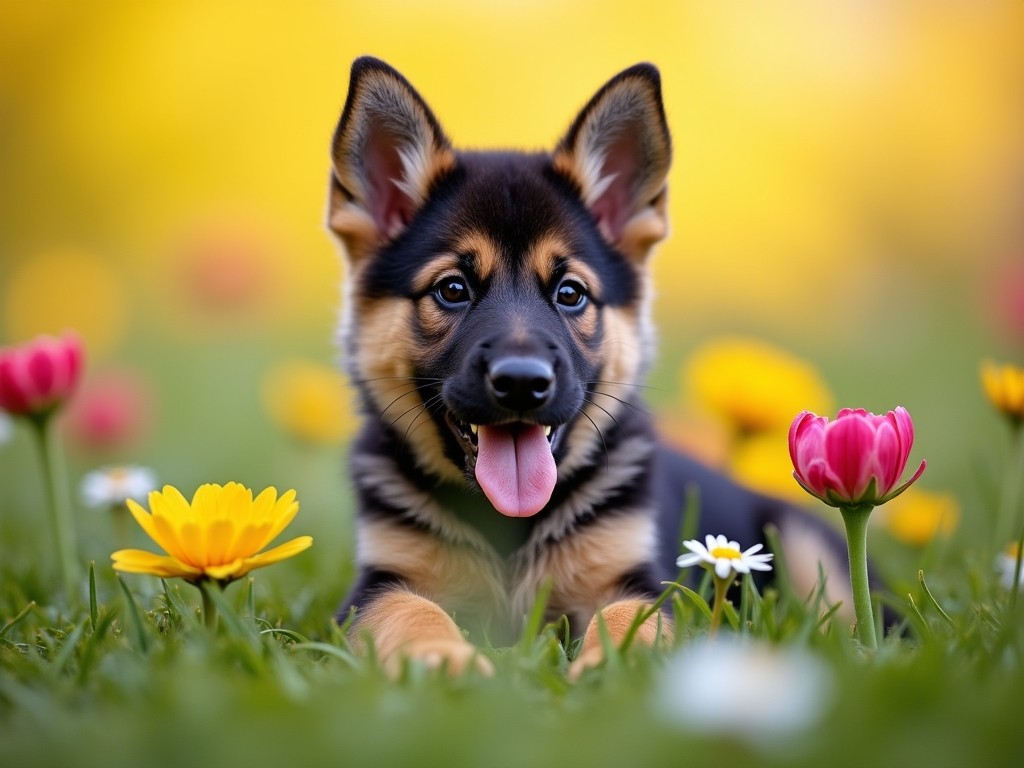


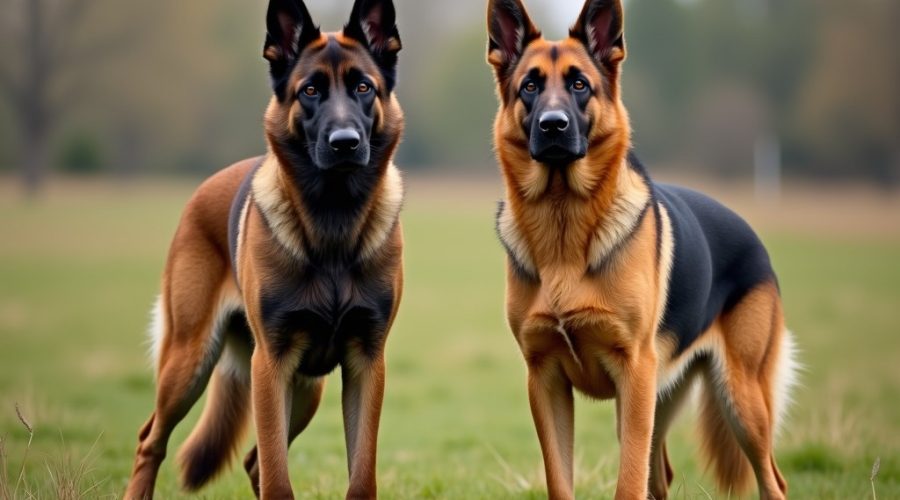
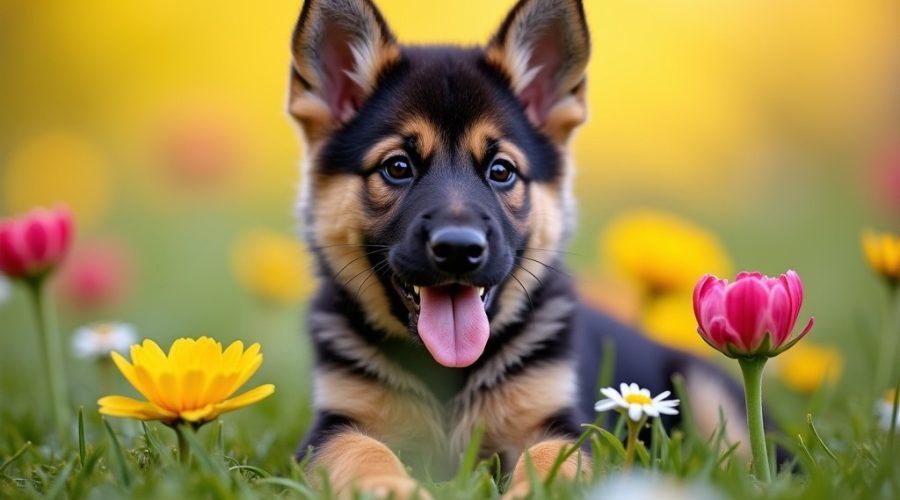





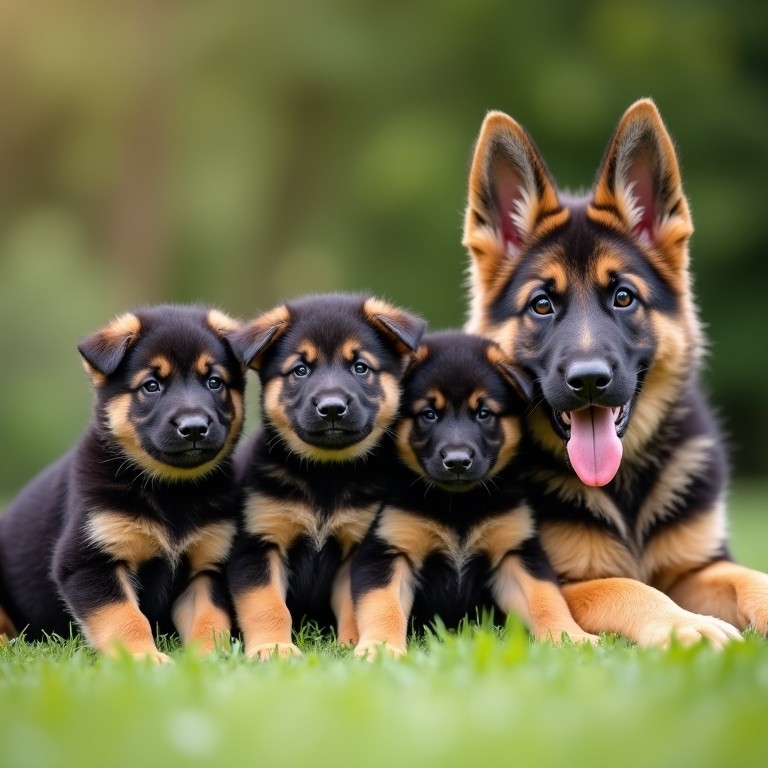
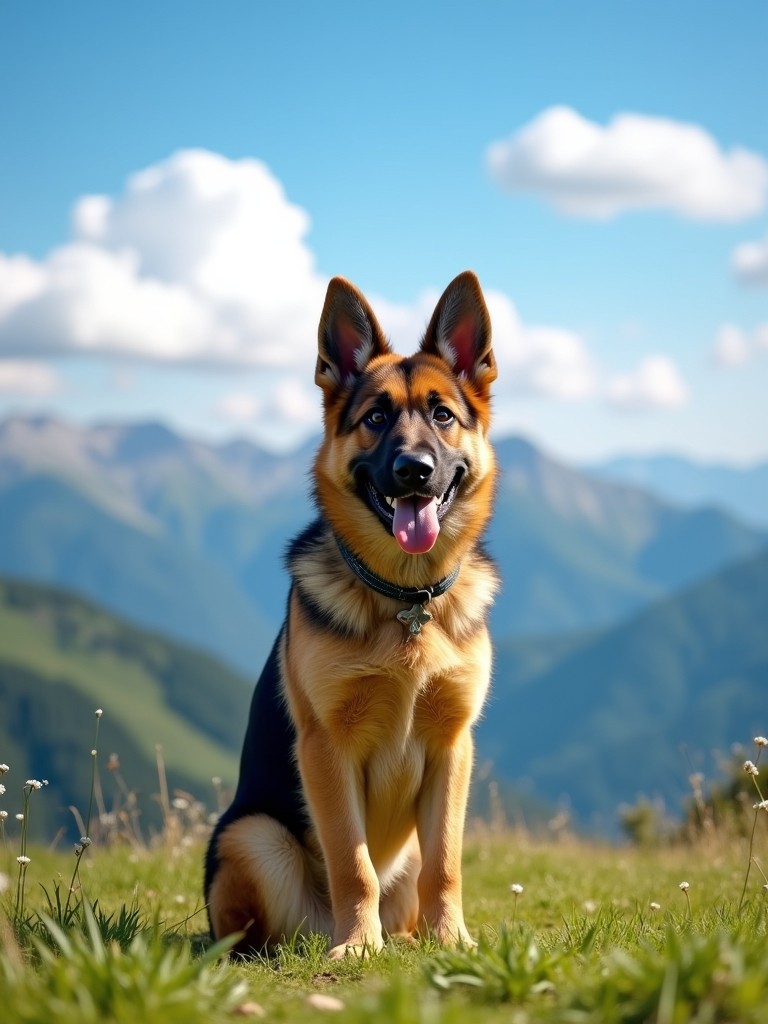
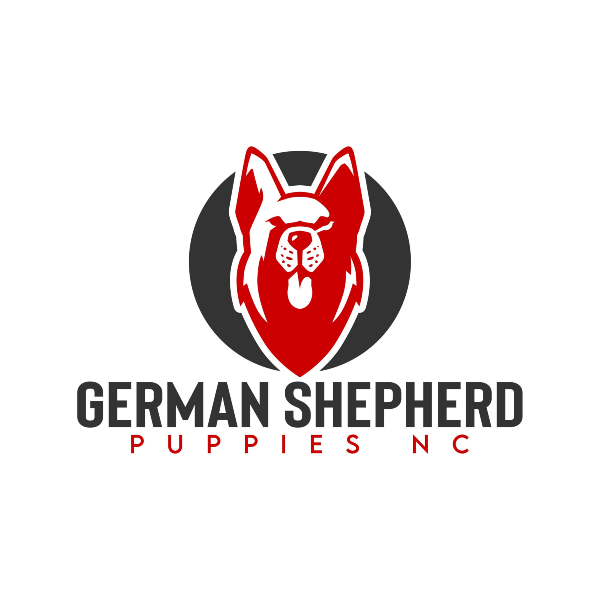


Our Social Media Channels